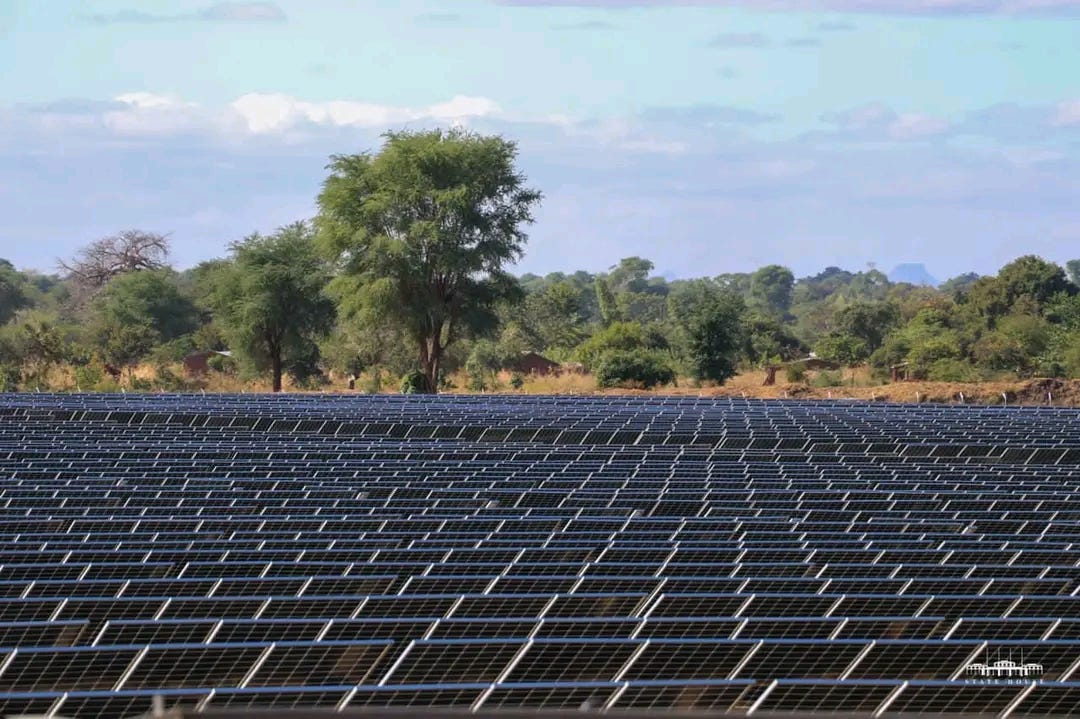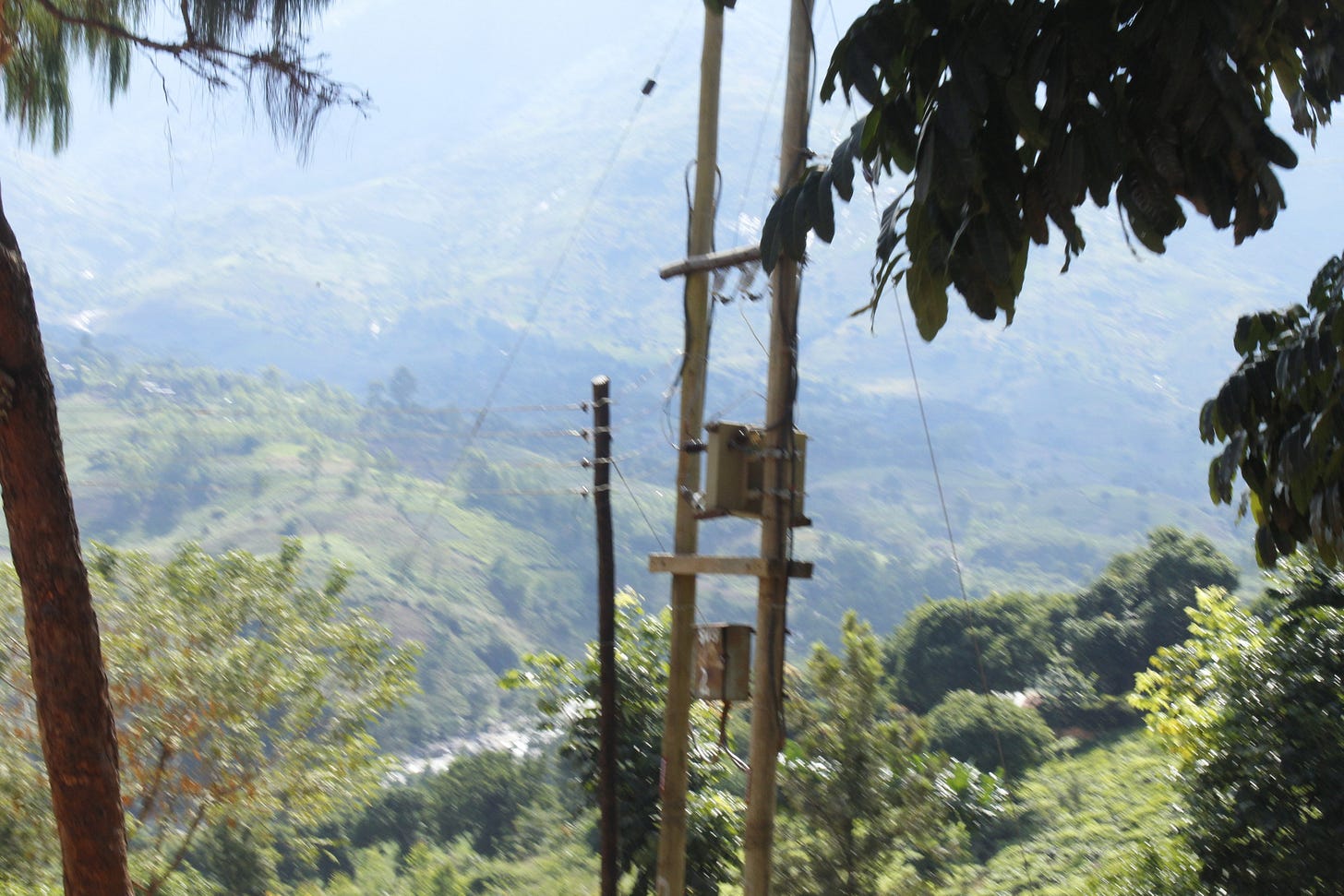Are We Doing Enough to Improve Access to Energy in Malawi?
Social and economic development depends on the availability of energy to drive it. Thus, the impact of either having access to energy or not is far too great to be overlooked.
I heard the President inaugurated the 20-megawatt JCM Golomoti Solar and Battery Storage Project in Dedza district three days ago. I must admit that is a great milestone towards increasing access to clean energy in Malawi.
JCM solar panels in Dedza
Photo Credit: State House
Everyone can attest to the persistent energy challenge that we have in this country. We have been shifting from 6 hours of blackout to 8 hours. One thing that cannot be denied is the role that energy plays in social and economic development.
Walking around in Lilongwe’s Area 23 lone one can see all the barbershops, saloons, maize mills, computer centers and grocery shops that are found along the road. All these need electricity to operate; to earn a living one way or another. Notwithstanding; this is an urban area which has access to electricity.
Now, imagine an area located along the mountains, 4.8km from the main grid; but without electricity. However, people living there still need to access milling services and barbershops. They also have clinics and schools that need electricity to operate effectively. That was the case of the people of Group Village Headman Bondo in Mulanje District.
Lack of electricity meant women walking approximately 4.8km to access milling services. Teachers would be reluctant to be transferred to Kabichi Primary School found in the community because of lack of electricity. When we talk of health, storage of medicine equally requires electricity and so too access to quality health services which the people of Bondo were denied.
The impact of having access to electricity and that of not having access to electricity is far too great to be overlooked.
That is why establishment of a mini-grid in Bondo village by the Mulanje Electricity Generation Agency (MEGA) has had a greater impact on the community’s lives. In 2014, MEGA got licensed as an Independent Power Producer allowing it to generate hydro power from Lichenya River and supply to the community. With this initiative, the people have had access to electricity for over 7 years allowing them to operate businesses and earn a living. Quality of education also improved at Kabichi Primary School due to with the electricity that allowed them to study and the presence of devoted and hardworking teachers.
MEGA power lines as seen in Bondo village
Photo Credit: CISONECC
For so long, Malawi has been striving to improve electricity access which was reportedly 14% as of 2020. However, exploring mini-grids can be a faster way of improving access to electricity especially in rural areas such as Bondo. When programmes such as the Malawi Rural Electrification Programme (MAREP) failed to improve access to electricity having run for over a decade; let us promote mini-grids by setting good working environments for Independent Power Producers.
Malawi can light up!


